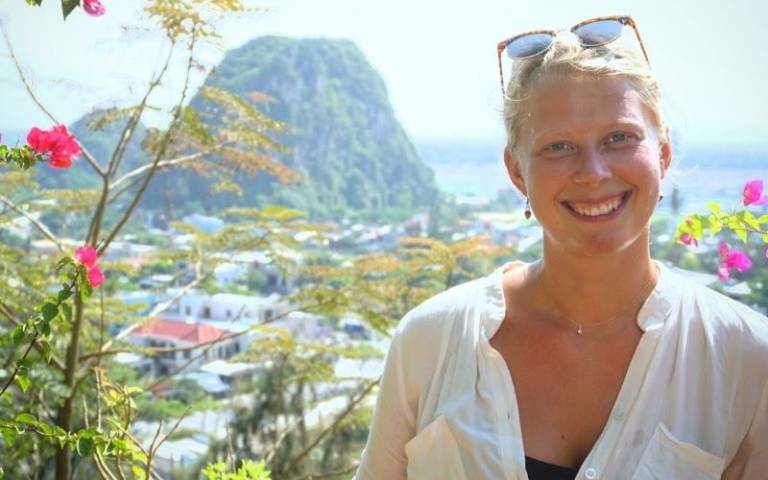Alumni Spotlight: Emily, Women's Health MSc
6 March 2024
We speak to Emily, an alumna from the Women's Health MSc. Hear what Emily has to say about her course and her career to date.

Where is home?
New York
What is your fondest memory of your time at UCL?
I have many great memories at UCL, mostly due to its unique location in the centre of London. We were a small, close cohort, in the middle of a massive global city where there was no shortage of exciting things to do, from theatre shows, to skating in the winter, to eating our way around town.
Please tell us a bit about the work you are doing now.
I work as a manager in the Health Policy and Insights team at Economist Impact, part of the Economist Group (publisher of the magazine). In this role, I work with global clients, managing the conceptualisation, delivery, and execution of evidence-based health policy projects. My responsibilities involve engaging with diverse stakeholders and leading teams through quantitative and qualitative analyses across key thematic areas. I have conducted in-depth work on fertility, women's oncology, and other important health topics and my expertise extends to managing complex projects and navigating the intricacies of health-related issues on a global scale.
How did your UCL degree help you get to where you are now?
Following an undergraduate degree in biology in Canada, I spent five years working in clinical embryology, in fertility clinic laboratories performing in vitro fertilisation and other micromanipulation techniques. I began to feel like the lab was too small for me, and I was more interested in the big-picture ideas in healthcare, especially in women's health. Having worked in such a niche field for so long, I was finding it difficult to transition, and therefore decided that doing a masters degree would be the right approach. I chose the Women's Health MSc at UCL partly because of the university's great global reputation, but also because it was a programme that could be modified in a way to cater to personal preferences, which allowed me to focus more on the fertility and reproduction aspects of women’s health, while learning more about research fundamentals. I learned a lot about conducting research, interpreting and presenting it, and was exposed to a lot more beyond the clinical aspects of fertility care, including policy, which I was immediately attracted to. My UCL degree allowed me to learn about different career options in this space, and I was able to start a role at UK fertility regulator, the Human Fertilisation and Embryology Authority (HFEA). Spending two years in regulatory policy allowed to to transition to my current role in health policy and insights wher I am able to apply everything I learnt in a way that makes real impact.
What have been your career highlights?
In my current role I have had the opportunity to represent Economist Impact at multiple international events and conferences, delivering presentations and leading workshops and roundtables. Two months in I travelled to New Zealand to lead a workshop on early breast cancer care, and how to make care more patient centric. Our report was also picked up on New Zealand media, where I shared our findings on live television. I also recently presented at global conferences in Adelaide, Australia as well as Putrajaya, Malaysia, where I was able to interact with extremely high-level stakeholders. Having these opportunities to share our work on a global stage with a high-impact audience is something I never would have been able to achieve had I not been able to successfully transition to this career, thanks to my UCL degree.
What would be your advice for current students?
I would say that the early part of our career is for experimentation. There is no expectation to find a career you are passionate about right away, and it is fine also to lose the initial excitement and move around until you find what’s right, even if it's just right for 'right now'. Also, sometimes obstacles can be opportunities.
 Close
Close

